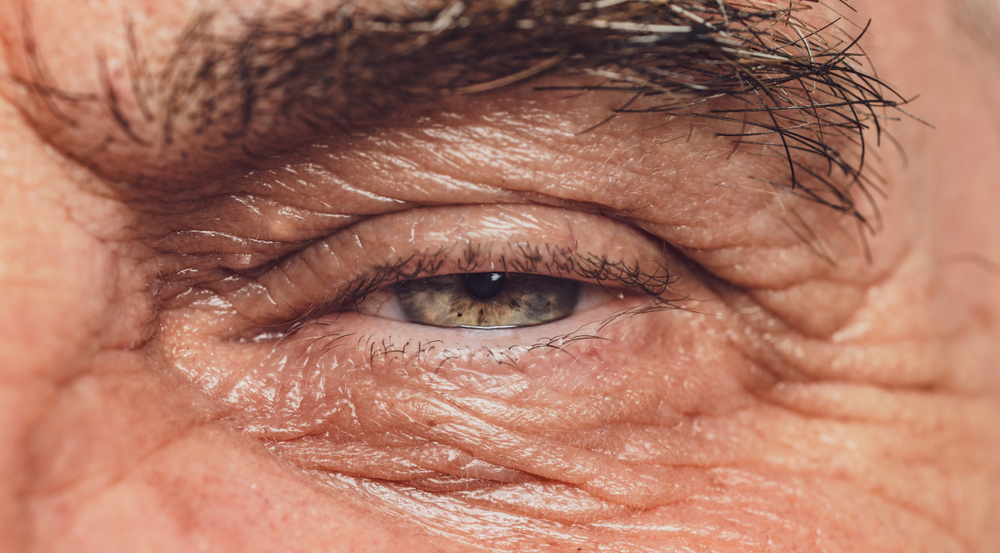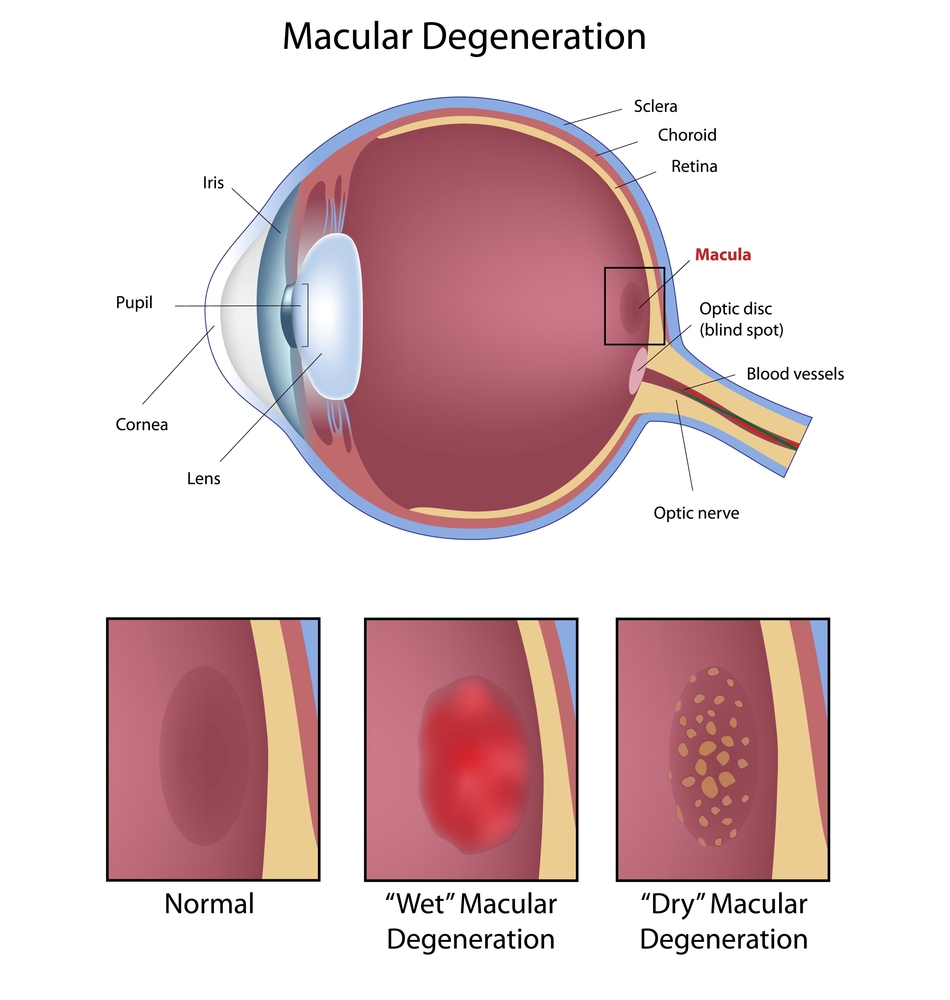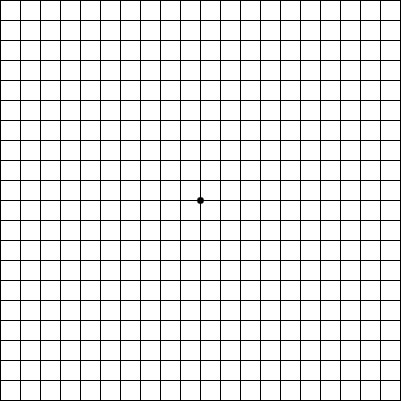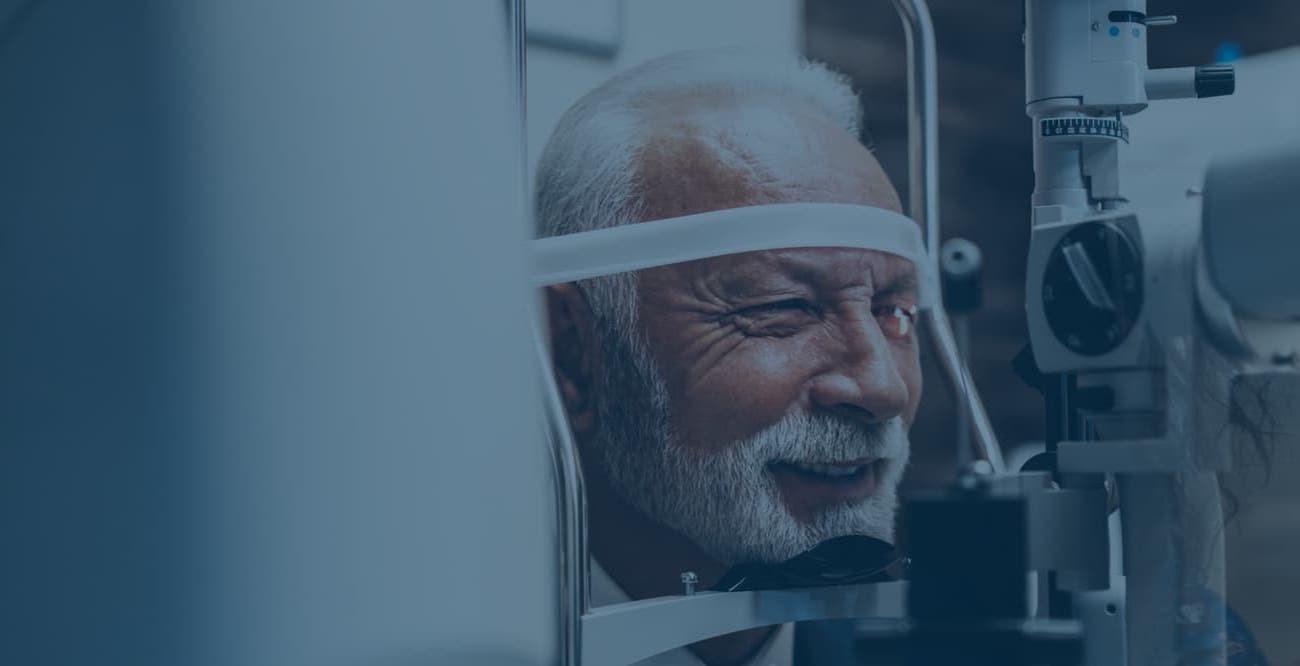
Symptoms of Macular Degeneration
The symptoms of macular degeneration will get worse over time, which makes it extremely important to have an eye exam as soon as you notice anything even slightly wrong with your vision. Symptoms may include:
- Blurriness
- Difficulty seeing light or dark colors
- Blind spots in central vision
- Loss of visual acuity
- Visual distortions
- Objects that have straight lines looking slightly bent
- Size or color of certain objects not looking the same in each of your eyes
Types of Macular Degeneration

Dry Macular Degeneration
Dry macular degeneration is the most common type of this condition. Although there are currently no viable treatment options for dry macular degeneration, the condition is typically very slow to progress. Visual aids and certain vitamin therapies may be able to reduce some of the symptoms and preserve as much central vision as possible for some patients. Regular eye exams and consistent monitoring is very important to prevent dry macular degeneration from becoming a serious threat to your overall vision.
Wet Macular Degeneration
Wet (neovascular) macular degeneration is the most serious type. It can develop and progress extraordinarily fast. Caused by the abnormal formation of blood vessels and subsequent leakage of blood or fluid between the layers of the retina, wet macular degeneration can result in permanent tissue damage. Central vision loss and reduction in the ability to see fine details can be effects of wet macular degeneration. If wet macular degeneration occurs in one eye, the risk of it affecting the other eye is increased. There are some treatments available (described below) that can slow vision loss and even improve eyesight for patients affected by wet macular degeneration; however, early diagnosis is vital.
Prevention and Treatment Options for Macular Degeneration
Prevention is one of the best things you can do to reduce the risks of macular degeneration. A healthy diet is a good first step: fish and green leafy vegetables can be very helpful. Vitamins with high levels of certain antioxidants (E, C, A, and beta-carotene with zinc) have been found to offer significant benefits when it comes to reducing the likelihood of macular degeneration.
Amsler Grid:

This simple test may be able to detect changes as they first appear in cases of macular degeneration:
Instructions on using the Amsler grid:
- If you have reading glasses, please put them on – keep the Amsler Grid 12 inches away
- Cover one of your eyes
- Keep your eye completely focused on the dot in the center
- While you look at the center, make sure that the small squares are all the same size and that all of the lines are straight
- If any area on the grid starts looking discolored, blurred, or distorted, please contact our practice immediately to schedule an eye exam
- Please repeat the test on the other eye

Wet Macular Degeneration Treatment
There are a number of treatment options that can be utilized for wet macular degeneration. During your initial consultation, our experienced ophthalmologists will go over these options and determine which may be best for your needs. Some of the treatments that are available include:
Intravitreal Injections
Intravitreal injections are drugs that can be used to slow the progression of vision loss caused by wet macular degeneration. Virginia Eye Consultants offers three of the most advanced intravitreal treatments: Lucentis®; Avastin®; and Eylea®.
Photodynamic Therapy (PDT)
PDT is a form of laser therapy that may be able to reduce vision loss caused by wet macular degeneration. A dye that is injected into a vein in the arm will localize the abnormal formation of blood vessels in the eye. Then, a laser will be targeted at those blood vessels through a special lens that has been carefully placed on the eye. In some cases, this treatment must be repeated at three-month intervals for at least a year for the best effects.
Contact Virginia Eye Consultants
Please contact us to learn more about our procedures for treating wet macular degeneration or to schedule your consultation with one of our skilled eye surgeons.
